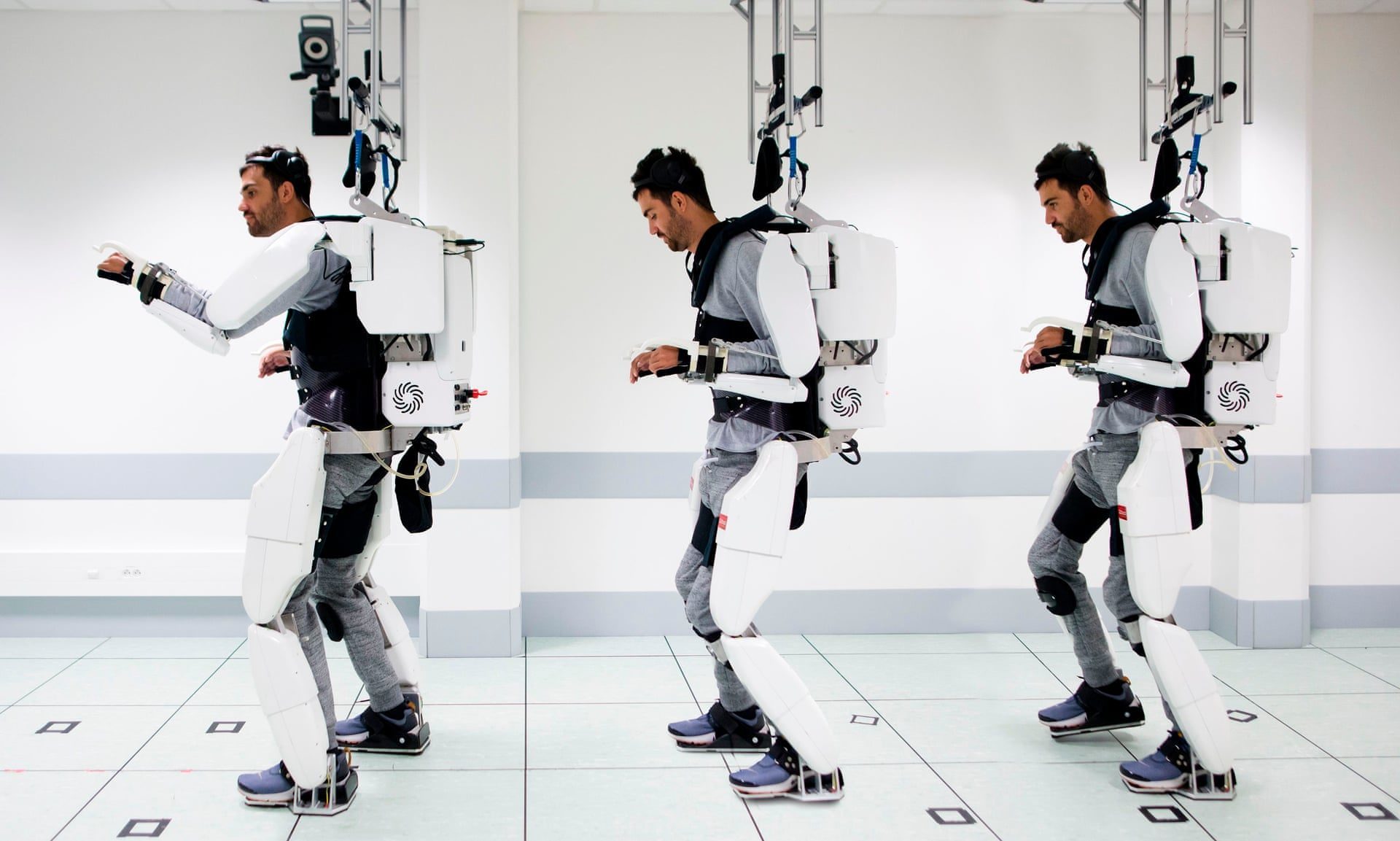A breakthrough technology that responds to signals from the brain has transformed the life of a paralyzed 28-year-old man called Thibault. Four years after the initial incident that paralysed him, Thibault is walking again. Thanks to a combination of revolutionary technology and immense brain power, he is able to operate a full-body exoskeleton.
“When you are in my position, when you can’t do anything with your body […] I wanted to do something with my brain,” Thibault said.
This is where the process began. He first trained his brain by using a video game avatar to help him develop the skills needed to operate an exoskeleton - this involved a long process of completely relearning and visualizing natural movements.
Thibault’s brain signals were then recorded by two devices, implanted either side of his head, between the brain and the skin. These read his sensorimotor cortex, the part of the brain that controls motor function.
Professor Alim Louis Benabid, leader of the trial at Grenoble Alps Hospital explains, “The brain is still capable of generating commands that would normally move the arms and legs, there’s just nothing to carry them out.'' This is where technology was able to provide the final piece of the puzzle. Moving from avatar to exoskeleton, over many training sessions Thibault has covered the distance of one and a half football pitches.
Experts involved in the study say their research may lead to the production of brain-controlled wheelchairs - a possibility revolutionary for those with restricted mobility. Thibault says the trial offers “a message of hope to people like me.”
This huge achievement disrupts morbid predictions of man being controlled by technology. Instead, therapeutic uses of this kind give us a positive model for creating technologies that facilitate human agency and determination in life-enriching ways.

Share your thoughts and join the technology debate!
Be the first to comment